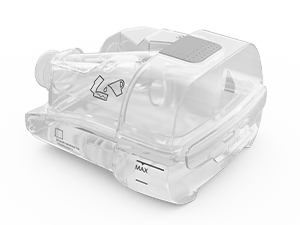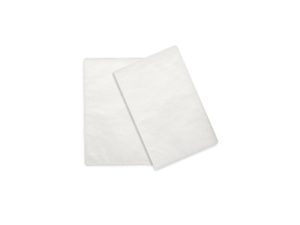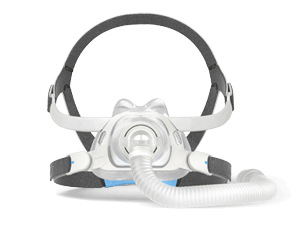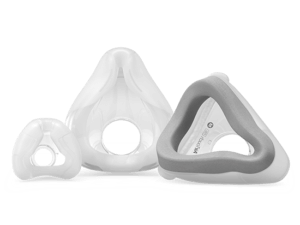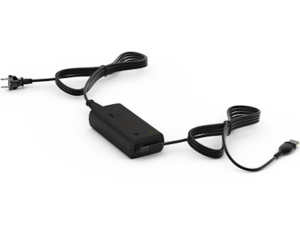Replacing your CPAP equipment, accessories and parts
Replacing your CPAP equipment, accessories and parts is an important part of maintaining your CPAP machine. With regular replacement of components, you can ensure your CPAP machine is working properly and that you’re getting the most out of your sleep apnoea therapy.
Can I buy replacement parts for my ResMed CPAP machine?
Yes – you can buy all our CPAP supplies and replacement parts from our convenient eshop or via your care provider.
CPAP replacement FAQs
FAQs for CPAP accessories and parts
No – you can order the parts you need at any time from our eshop or your healthcare professional. If you are not sure whether a part needs replacing or not, you can contact your care provider or CPAP prescriber for advice.
It depends on how often you use your CPAP equipment, how you clean it and whether the parts come into contact with your face.
This is why you need to check your CPAP equipment regularly for any signs of damage or deterioration.
Cushions or pillows
- Edges that have become stiff or cracked
- A change in your cushion’s colour
- Any discomfort, skin redness or irritation when using your mask
Air filters
- Signs of wear such as discoloration, holes or tears
Mask frame (minus headgear)
- Excessive air leaks that have increased over time
Standard or heated air tubing
- The tubing becoming opaque or cloudy as opposed to clear
- Any cracks or tears
CPAP chin strap and headgear
- Headgear that seems stretched or to have lost elasticity
- Needing to over-tighten straps to avoid leaks
Humidifier tub
A cloudy or discoloured water chamber, or any cracked or pitted areas.
An old mask is more likely to leak, while old headgear may lose its elasticity, so you need to over-tighten it, leading to discomfort. Using a mask that’s in good condition will help you to enjoy comfortable, effective therapy every night.
The life of a mask cushion depends on various factors, such as how much you wear your mask, your skin type (dry, oily, etc.), and how often you clean it.
When it comes to how often you should replace your mask, your mask replacement schedule is unique to you and your type of mask. This is why we highly recommend inspecting your mask according to the cleaning and maintenance routine outlined above and detailed in your user guide – this contains information to help you inspect, assess and replace your supplies.
Warning:
As the AirTouch cushion is disposable, we recommend replacing it every month. Please refer to your AirTouch user guide for more information.
FAQs for CPAP machine
To make sure you’re receiving good-quality therapy complete with the latest features for your comfort, you should think about upgrading your CPAP device every five years.
We recommend you also maintain and check your products regularly, replacing any part as needed. If you can see a part has damage (cracking, discolouration, tears, holes, etc.), you should dispose of it and purchase a replacement.
Here are some tips for getting a replacement CPAP machine:
- Contact your healthcare provider or CPAP prescriber as soon as you know you need a replacement device.
- Be prepared to answer questions about your CPAP therapy, as they may want to know how often you use your machine and how well it is working for you.
Keep exploring

Order your CPAP supplies online
Do you need new CPAP accessories, equipment or spare parts for your equipment?
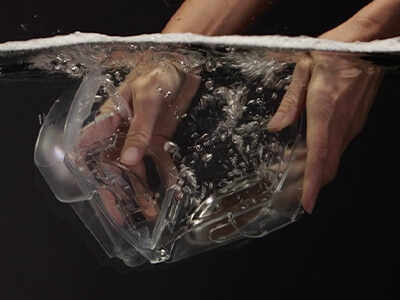
Cleaning your CPAP equipment
Want to ensure your sleep apnoea therapy is as effective as possible? Keeping your CPAP equipment clean will help, so here’s our guide to get you started!

Product user guide
Digging through drawers for your product user guide? Don’t worry, you can browse and download all user guides here.
Please refer to the user guides for relevant information related to any contraindications, warnings and precautions to be considered before and during use of the products.
References:
- Benjafield, Adam V et al. Positive Airway Pressure Therapy Adherence with Mask Resupply: A Propensity-Matched Analysis. Journal of clinical medicine vol. 10,4 720. 12 Feb. 2021, doi:3390/jcm10040720.
- ResMed external clinical study of 400 PAP patients, conducted between 16/10/2017 – 27/10/2017, 2017 data on file; ID C278965.
Content last updated: 02/2024.
